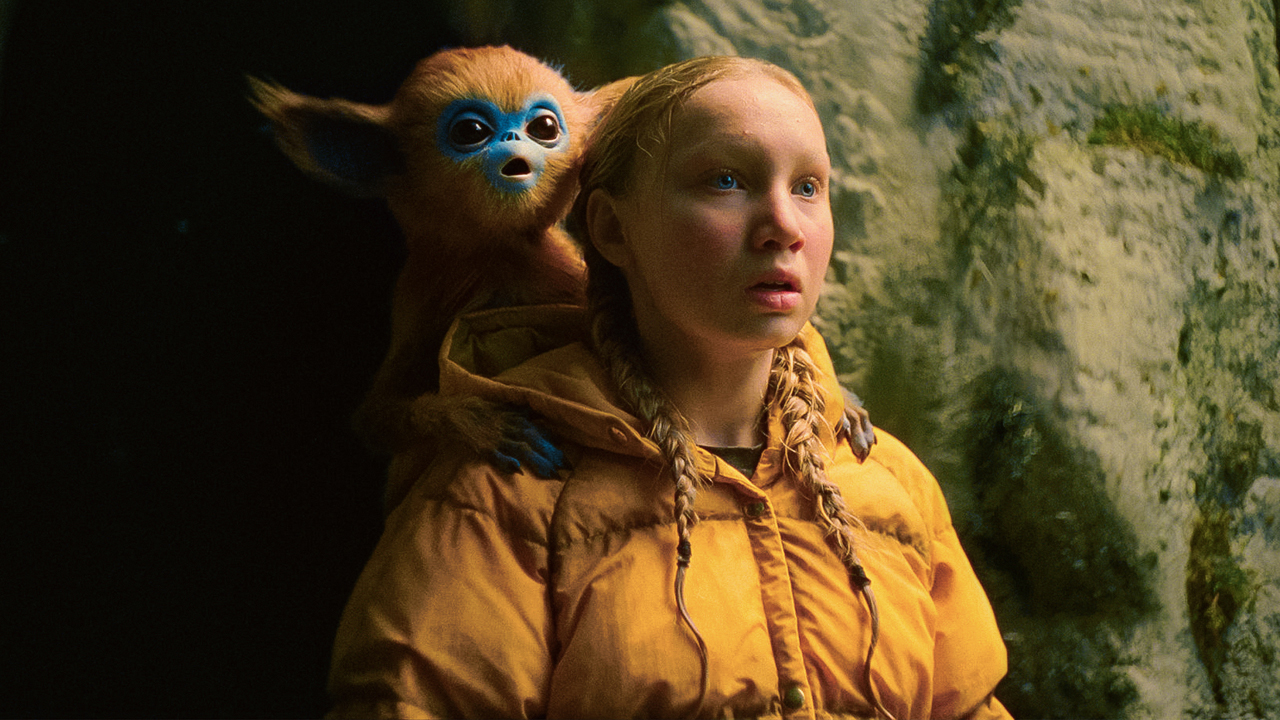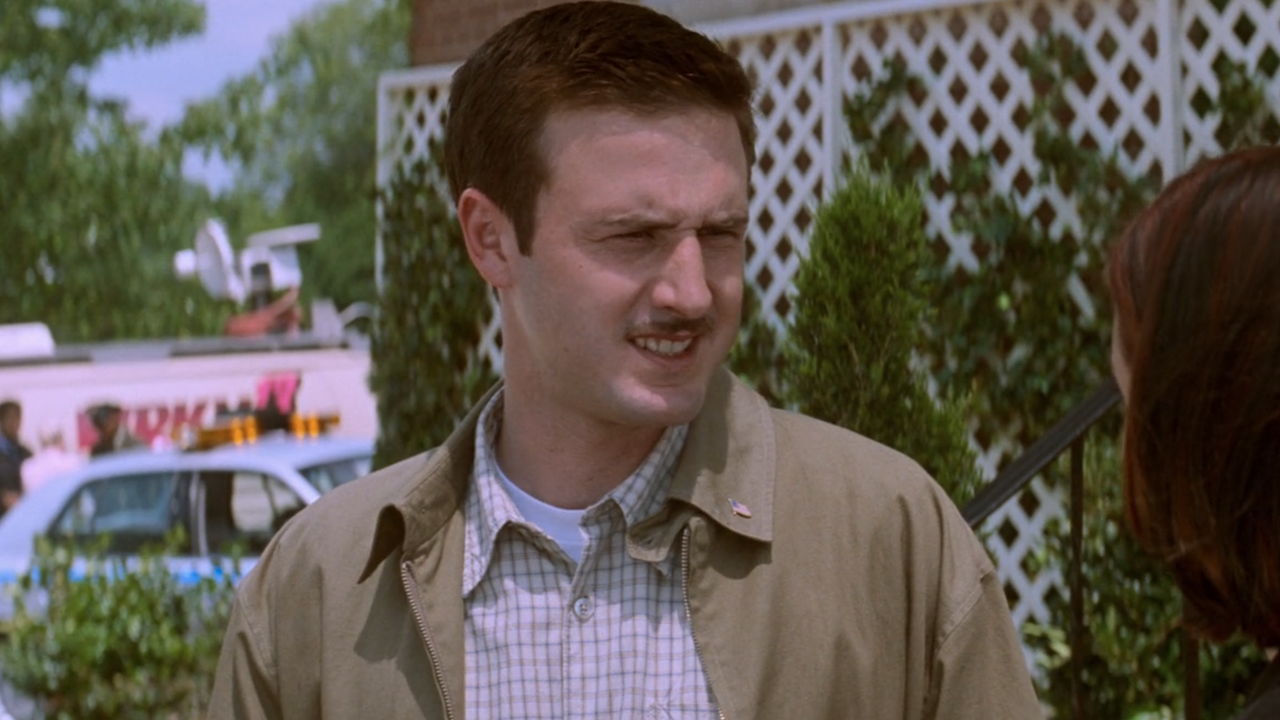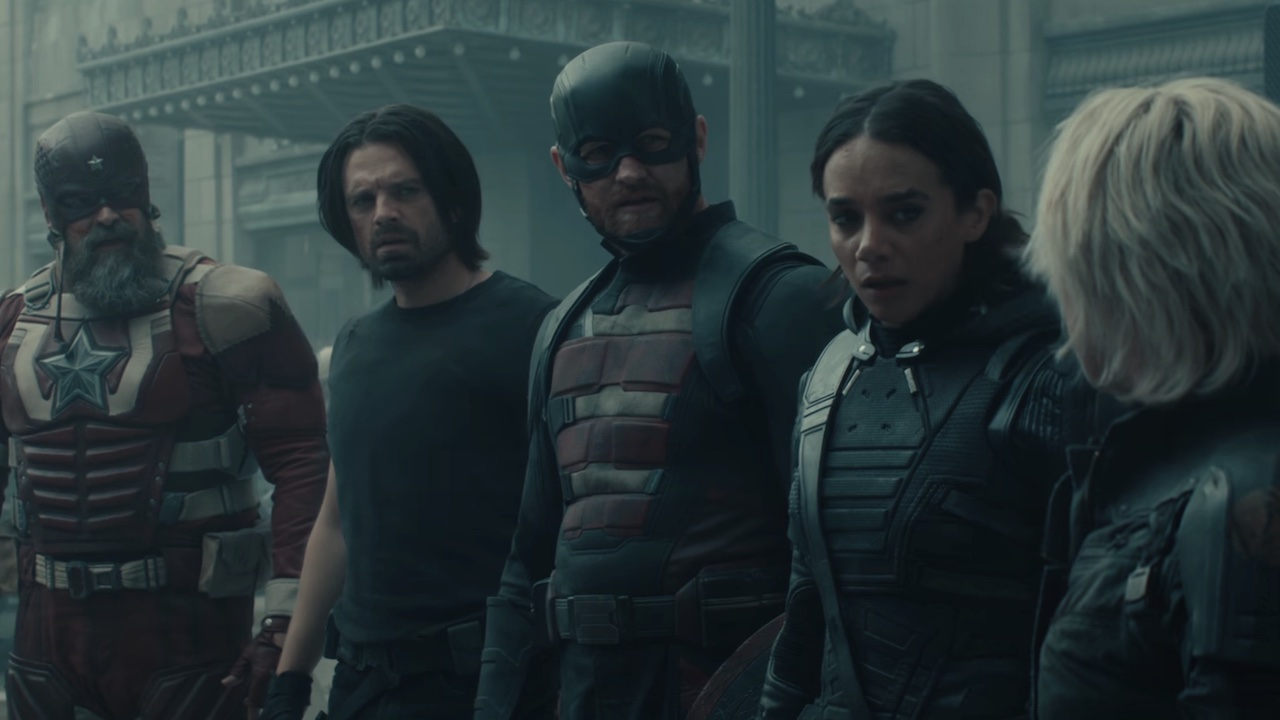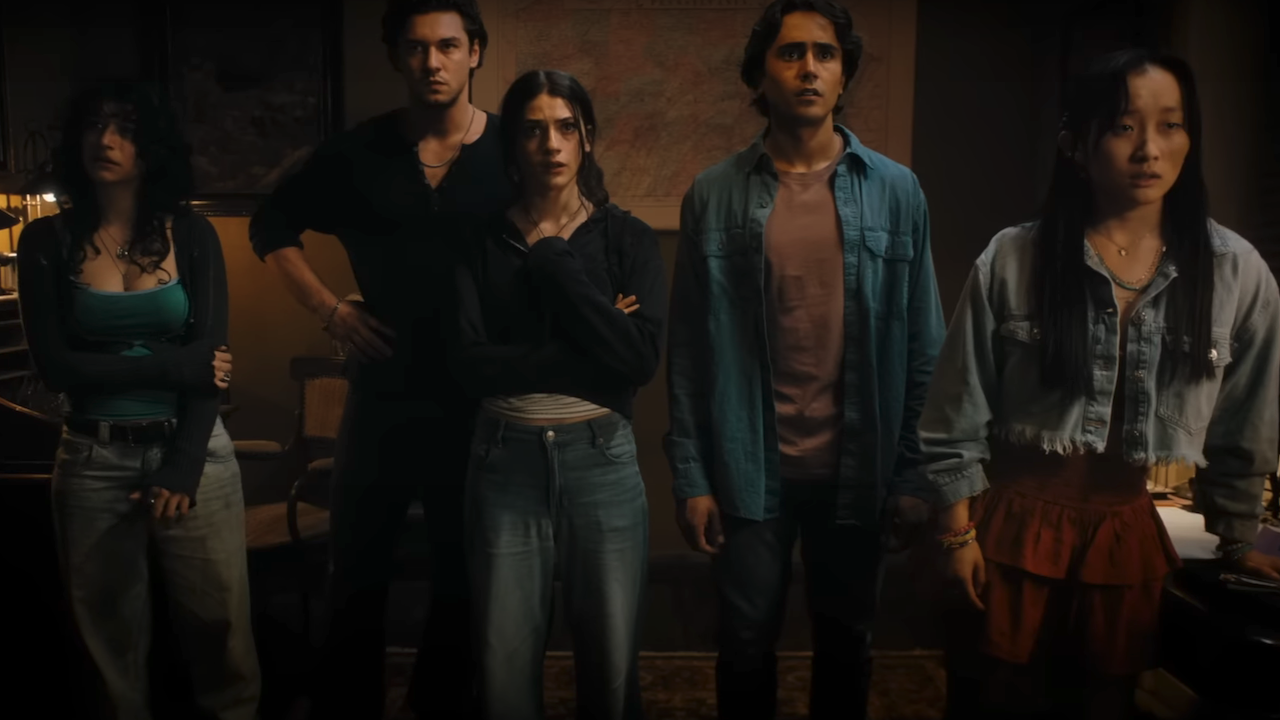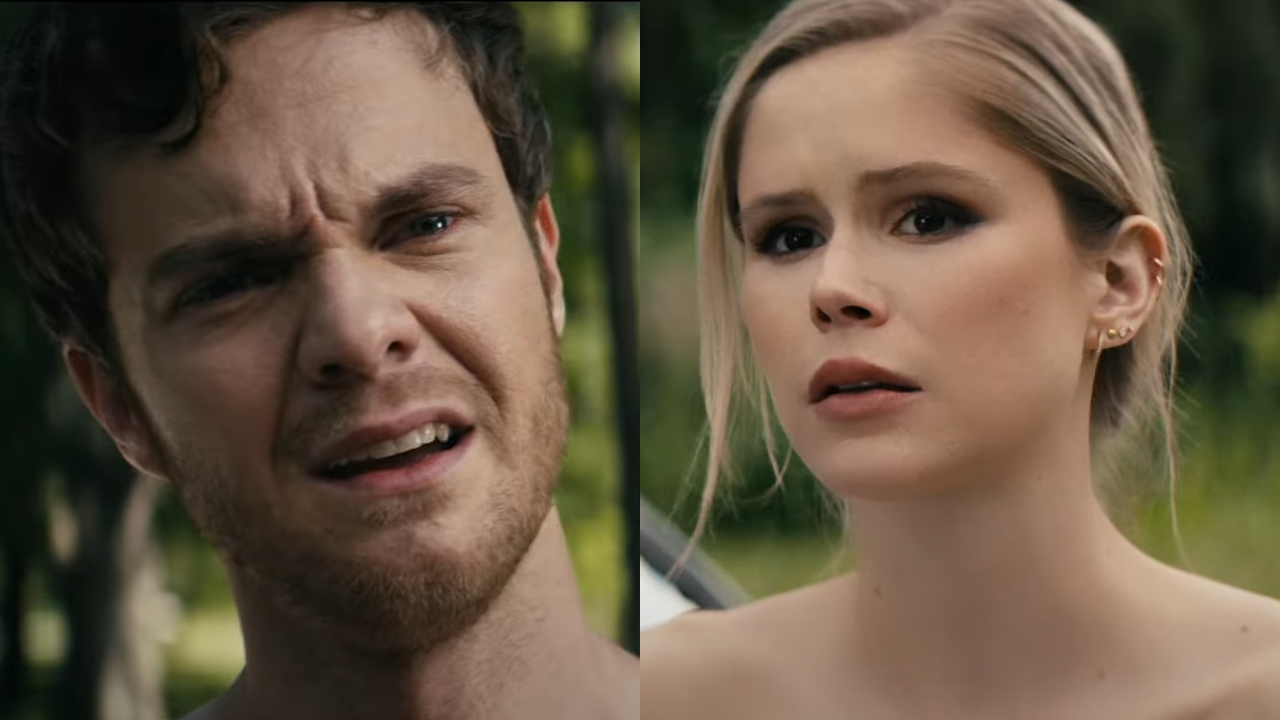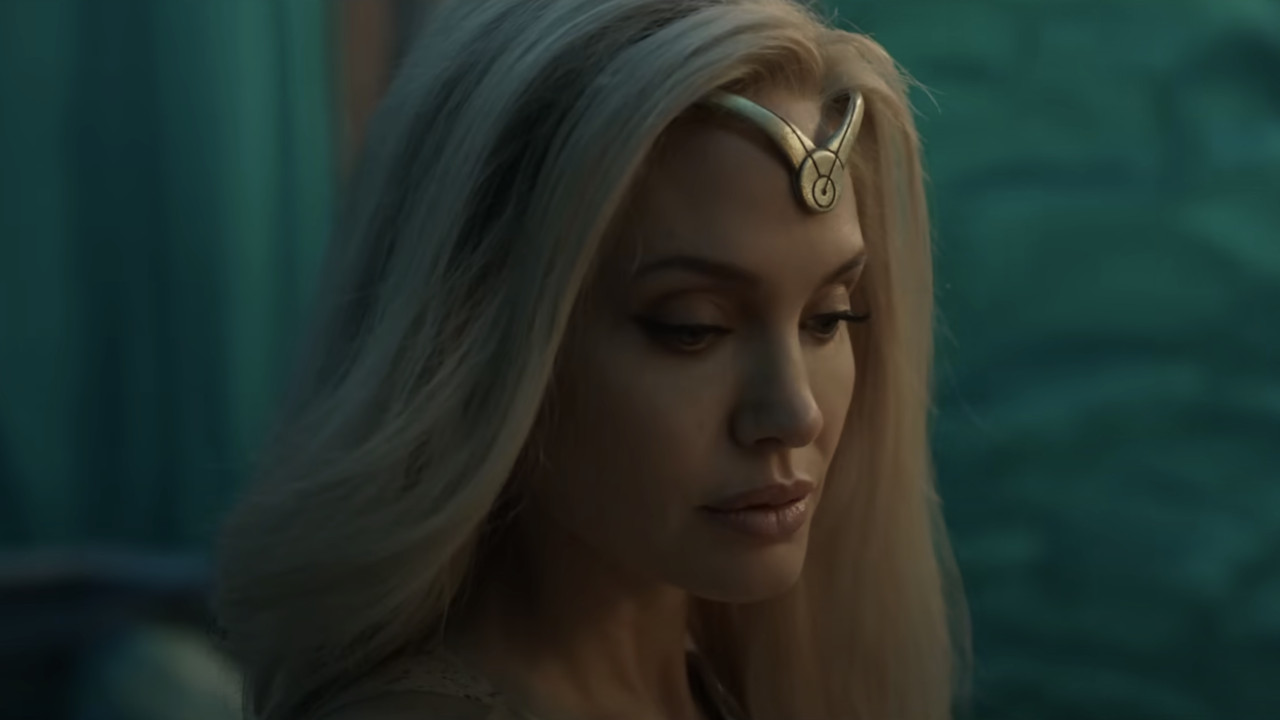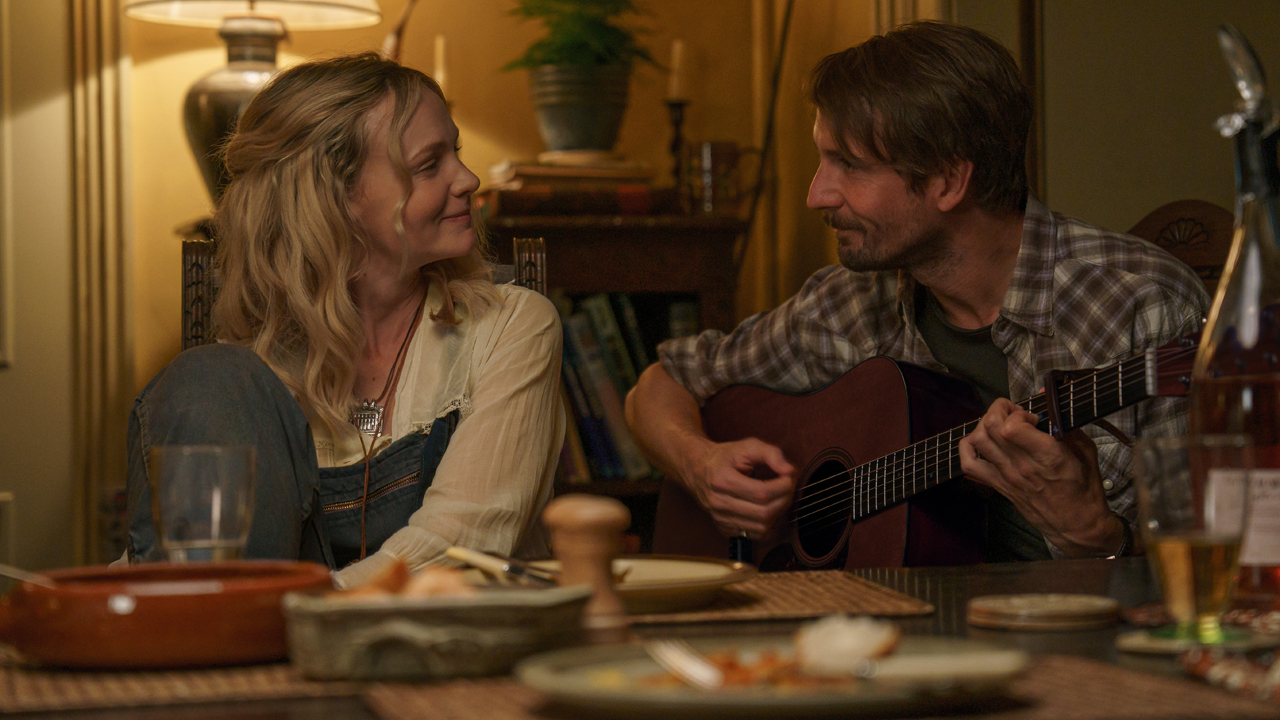To 3D Or Not To 3D: Choose The Right Fright Night Ticket
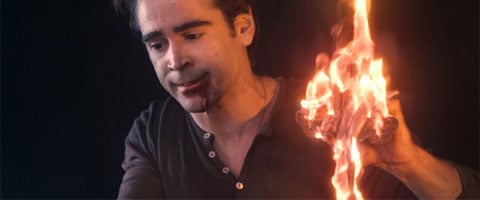
If you head out to see Fright Night this weekend one of the biggest decisions you’ll face is how to see it. Colin Farrell’s new vampire movie is being shown in both 2D and 3D versions, and you’ll pay more to see it in the 3D format. We’re here to help you decide between them.
The purpose of this article is not to review Fright Night as a film, but rather to analyze the movie’s 3D in a technical, unbiased way. If you’re wondering what I thought of the movie, I loved it, but will attempt to leave that out of it as we break down how well the film’s 3D actually works up there on screen. To do that, I’ll use a 7-point system which will score the movie’s 3D effects based on different criteria. We’ll total up that score at the end and help you decide whether or not to pay the extra price necessary to see Fright Night in 3D. Read on…
Does It Fit?
3D tends to work best on brightly colored computer generated effects. Fright Night is a horror thriller with action elements, which takes place mostly in the dark. That’s the kind of thing that causes problems. At least, however, it is an action movie and those horror elements present plenty of opportunities to throw things at the camera without really getting too gimmicky. Horror has a long history in the 3D format and so do vampires.
Fit Score: 3/5
Planning & Effort
Fright Night was planned as a 3D movie right from the start, and the production went out and got a group of seriously experienced 3D vets to make it happen. Special rigs were used to achieve some pretty special 3D effects, where they maximized the 3D space in the film. Max Penner who worked on the film as its stereographer says of their techniques, “I control how deep the 3D space is and where it is placed in relation to the screen plane. This is achieved by using a 3D beam splitter rig that is a combination of two cameras and/or two sensors and two matched sets of optics that work synchronous and view images from two different points, very much like human eyes.” Short version: He knows what he’s doing.
P&E Score: 5/5
Beyond the Window
CINEMABLEND NEWSLETTER
Your Daily Blend of Entertainment News
One way to use 3D is as a method for creating depth on the screen. 3D can make it look as though the screen is a window you’re peering through, with action happening at varying depths behind that. Fright Night does that and maybe a little more. More than simply creating depth of picture, Fright Night actually uses its 3D depth to create an eerie quality to what’s happening. The way the camera swings around, for instance, in a crucial chase scene uses the depth of the scene to the fullest, making it seem as though we’re spinning around right in the center of the action. More than that, it uses that depth to define definite lines of space in the air, as in a scene where Colin Farrell’s vampire character lurks outside a door he cannot cross. At times it’s brilliant, at other times though, it doesn’t do much with it and close up shots feel a little flat. They have some great ideas here, enough to earn a strong score, but it’s not always consistent and occasionally their grasp exceeds their reach.
Beyond the Window Score: 4/5
Before the Window
3D can also be used to create the illusion that objects projected on to the screen actually extend beyond it. Fright Night makes a real effort to utilize all aspects of 3D technology and does a fair job of attempting this. In particular there’s a scene where burning ashes float in front of the camera that will really wow you, but it tries to make uses of 3D’s ability to extend beyond the screen throughout its running time. We’re not talking gimmicky scenes where a character throws stuff at the audience while winking at the camera, but rather something that just happens naturally in the course of the action. Things swing past the camera lens, explosions extend just a little further than they wood in another film. It’s rarely overt and pretty well done. In some cases they’re limited by budget and the computer generated effects used to accomplish this are obvious, but in others it’s almost seamless. Well done.
Before the Window Score: 4/5
Brightness
Wearing a pair of 3D glasses is like watching a movie with sunglasses on. That means 3D doesn’t really work as well on dimly lit movies. And since Fright Night is a vampire film, a lot of it takes place with characters skulking around in the dark being hunted. That doesn’t really work for 3D. Fright Night tries to compensate with some pretty great camera movement and at times it’s even successful, but the real problem here is that these scenes are really just too dark for 3D to work properly. You may find yourself squinting to see what’s going on, particularly in movie theaters with lower quality projection.
Brightness Score: 2/5
The Glasses Off Test
Take off your glasses while watching a 3D movie and you’ll notice that the screen becomes blurry. The simplest way to explain this is that the blurrier the image without your glasses on, the more the movie’s utilizing 3D. To test this I took my glasses off at regular intervals during Fright Night to examine the way the movie used 3D effects. What I found was that while in many scenes the screen became utterly blurred, in others it was used far less so. That’s not necessarily a bad thing, varying the levels of 3D used can help heighten the 3D effect, but Fright Night didn’t always blur as well, as consistently, as some of the other movies I’ve used this test on.
Glasses Off Test: 3/5
Audience Health
Some people just can’t handle 3D and will get sick no matter what, but this is directed more at hardier moviegoers, those of you likely only to be affected when something’s really gone wrong. Most of Fright Night is fairly well filmed but, all that dim lighting may cause mild eye-strain or in more extreme cases even headaches. I personally had no problem with the film even though I did have headaches caused by the dim lighting used in Conan the Barbarian, but be aware if you’ve ever had problems with dimly lit 3D movies before.
Health Score: 3/5
| SCORES RECAP | |
| 3D Fit | 3 |
| P&E | 5 |
| Beyond The Window | 4 |
| Before The Window | 4 |
| Brightness | 2 |
| The Glasses Off Test | 3 |
| Audience Health | 3 |
| Total Score | 24 (out of a possible 35) |
Final Verdict: If they’d found a way to make the movie brighter, this could easily have been one of the best 3D experiences of the year. But it’s a vampire movie, and dimly lit scenes is kind of what you’re in for. They do the best they can within those limitations and the result is a lot of flat out fun. If you’re willing to squint through the 3D haze created by your 3D glasses, Fright Night might be worth paying that 3D surcharge for.
For more 3D analysis, visit our To 3D Or Not To 3D archive right here.

